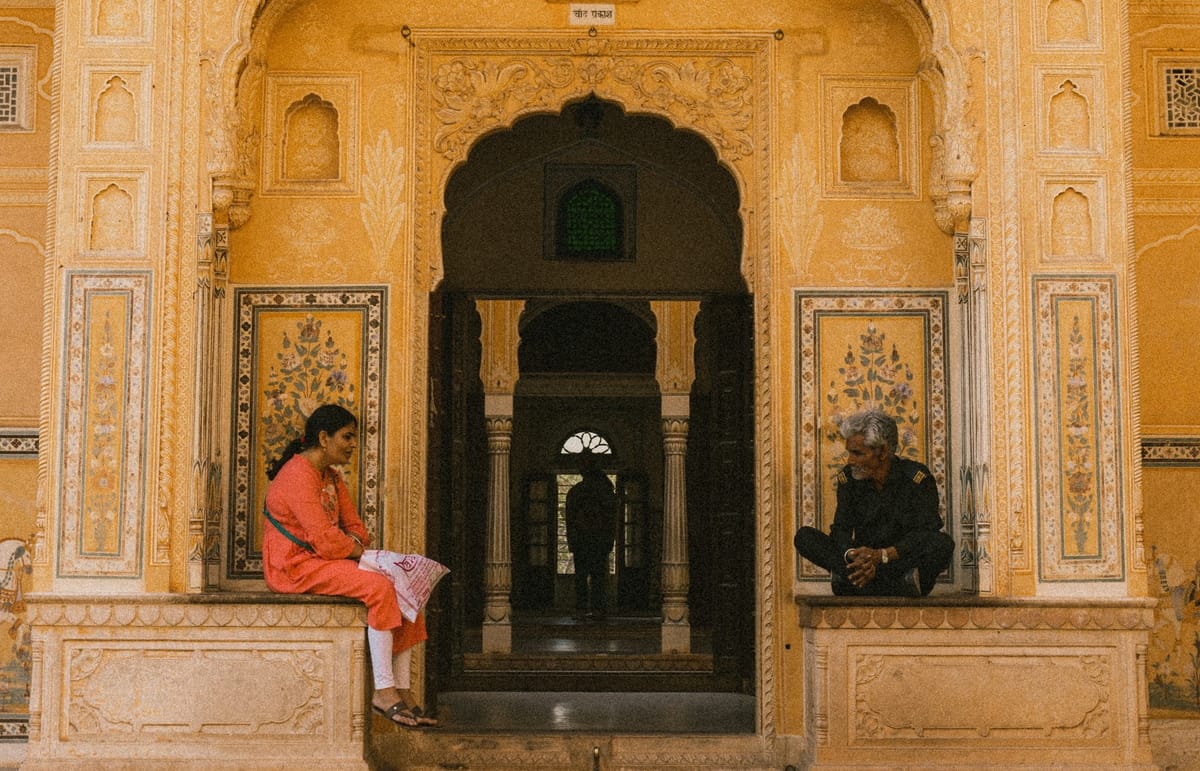Your History Teacher Is Wrong

Civilizations don't heal by accident.
Take Germany after 1945. They didn't stumble into becoming a beacon of modern democratic values. They didn't accidentally develop one of the world's strongest advocates of human rights. They certainly didn't get there by building monuments to Hitler or teaching kids that the Third Reich had "some good points too."
They did something most societies won't do. They looked in the mirror. Hard. Unflinchingly. And they said two words that changed everything: "Never again."
But what happens when societies refuse this moment of reckoning?
First, the wounds don't heal—they fester. Second, the trauma doesn't fade—it compounds, passing from parents to children to grandchildren like some genetic curse. Third, the lies necessary to maintain the denial start eating the society from the inside out.
Historical reconciliation isn't about dwelling in the past. Anyone who tells you that misunderstands its purpose. Because historical reconciliation is about creating space for the future. It's about earning the right to say, "We see what happened. We acknowledge the suffering. We choose a different path."
This is not political correctness run amok. This is civilizational courage. And the current Indian society lacks it.
The Tyrant's Longest Shadow
Many societies have an Aurangzeb. Rulers whose legacy gets measured not in what they built, but in what they destroyed. Not in what they created, but in what they erased from existence.
The historical record is clear. These figures existed. The question that defines civilizations is simpler: What do we do with their memory?
Do we celebrate the destroyer of Hindu temples as a "complex historical figure"? Do we rationalize systematic destruction as "the way things were back then"? Do we teach children that cultural annihilation was just "one perspective among many"?
Or do we call evil what it is?
This question becomes even more urgent when we consider how denial disguises itself.
The Trojan Horse of Denial
Our current refusal to confront historical truth doesn't present itself as denial. It wears the mask of nuance. It claims the mantle of balance. It positions itself as the sophisticated, secular, tolerant position.
"We must understand the full context." "History is complex." "We can't judge the past by today's standards." "There were good things too."
But real secularism doesn't mean moral equivalence between victims and perpetrators. Real tolerance doesn't require us to tolerate systematic intolerance. Real balance doesn't mean weighing genocide against administrative efficiency and calling it even.
When we refuse to name evil, we don't eliminate bias—we institutionalize it. We don't create harmony—we perpetuate the original injustice. We become accomplices after the fact.
The Nazi Test
Try this experiment: Imagine someone today defending Hitler. Picture them explaining away the Holocaust, rationalizing the SS, or proposing monuments to celebrate the "complexity" of the Third Reich.
What would you call them? Nazi sympathizers. Obviously. Immediately. Without hesitation.
Why? Because we understand intuitively that some actions transcend political interpretation. Some legacies are beyond redemption. And that some historical figures forfeited their right to nuanced remembrance the moment they chose systematic destruction over human dignity.
The same moral clarity that makes Nazi apologetics instantly recognizable should guide us everywhere. Evil doesn't become acceptable because it happened longer ago, affected different people, or wore different uniforms.
Yet somehow, we apply this test selectively. Somehow, certain atrocities get the Hitler treatment while others get the "complex historical figure" treatment. The difference isn't in their respective crimes, it's in our courage to confront them.
The Path Forward
Civilizational healing requires civilizational honesty. Full stop.
It means teaching history as it actually happened, not as we wish it had happened. It means honoring victims rather than their victimizers and building the future on truth rather than convenient fiction.
To be clear, this isn't about revenge—it's about recognition. It's about acknowledging that some things matter more than keeping the peace. That justice matters more than comfort. That truth matters more than comfortable myths.
Every generation inherits the same choice: perpetuate the lies or confront the truth.
Germany chose truth. They mandated Holocaust education. They built memorials to victims, not perpetrators. They made remembrance a civic duty. The result? A society that genuinely transformed itself.
South Africa chose truth. They created truth and reconciliation commissions. They documented apartheid's horrors in public forums. They chose acknowledgment over amnesia. The result? A society that, despite ongoing challenges, could begin to move forward together.
Societies that choose truth create space for healing, growth, and genuine reconciliation.
Societies that choose comfortable lies? Like India. They remain trapped in their own past, forever defending the indefensible, forever explaining away what should simply be condemned.
The Mirror
The mirror is right there. It's been there all along. The question isn't whether we can see our reflection—it's whether we're brave enough to look. And once we look, whether we're brave enough to choose differently.
Because that's what civilized societies do. They learn. They grow. They refuse to repeat the mistakes that haunt their past.
They choose to be better.





